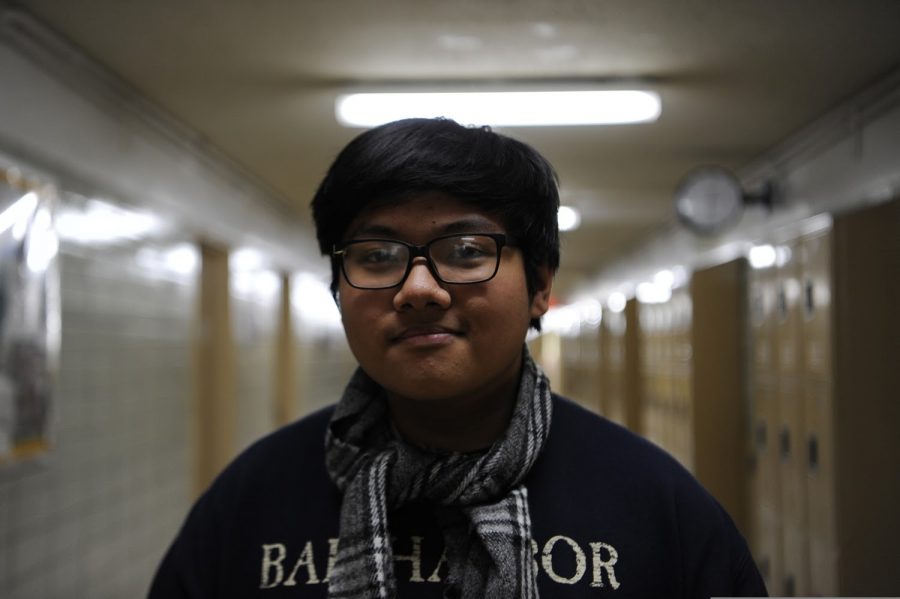88Rising Drops ‘Head in the Clouds II’
Kevin Lama ’20 has strong opinions regarding 88Rising’s latest album, ‘Head in the Clouds II.” “These artists featured on this album have such great talent, but it seems that this is a half baked effort at songwriting as an obligation to a contractual agreement rather than genuine songs.”
In mid-October 2019, the Asian-dominated music collective 88Rising debuted their album ‘Head in the Clouds II.’ The group’s sophomore album, consisting of mostly pop and rap elements, had been highly anticipated.
Known for their successful debut album, ‘Head in the Clouds,’ 88Rising led many fans to believe that ‘Head in the Clouds II’ would emulate the success of their previous album. There was a fair amount of promise and buildup before the release, especially given the group’s reputation of being composed of talented and mostly Asian artists. 88Rising is known for breaking many boundaries, despite having only been around since 2017. The group consists of artists hailing from throughout Asia, including China, Japan, and Indonesia.
Each of the artists, Niki, Joji, Rich Brian, Higher Brothers, Keith Ape and August 08, are talented in their own way. August 08, one of the newest additions to the collective, meshes soul and R&B elements into his powerful hits. Keith Ape, one of the group’s oldest members and already an established artist in the emerging Asian hip-hop scene, held an important role in the group’s initial success. The Higher Brothers, based from China, are best known for their hip hop and trap-influenced Chinese tracks. Indonesian rapper Rich Brian first emerged in the music scene as a teenager in 2016 after his debut hit ‘Dat $tick.’ Joji, one of the most well-known artists of this group, meshes R&B and pop influences in his rather melancholy songs. His most popular track, ‘Slow Dancing in the Dark’ from his debut album, ‘Ballads 1’, hit Platinum during July of last year. Niki, one of the strongest R&B influences within the group, began posting covers of herself on Youtube. Joji, Rich Brian, and Niki are all set to perform at Coachella this summer. Their individual successes promise a favorable future as a group.
They have garnered popularity in recent years, and have amassed a cult following. Last August, before the release of ‘Head in the Clouds II’, thousands flocked to the second 88Rising Head in the Clouds Festival in Los Angeles to listen to the artists’ exciting and popular hits.
The sixteen track album spans a diverse array of musical genres, while still staying true to the group’s creative roots. The meshing of pop, hip hop, and R&B creates a unique and relaxed vibe and aesthetic. Unseen in their previous album was the incorporation and strong prevalence of electronic components. The move toward electronic pop and auto-tune diverges from their original work, a testament to their commitment to creativity. For the most part, the songs are upbeat and fast, exuding a primarily cheerful, positive tone.
Unlike 88Rising‘s preceding album, ‘Head in the Clouds II’ includes multiple featured artists. Staying true to its vision of Asian representation, the album features many small and promising Asian artists such as Phum Viphurit and Stephanie Poetri. ‘I Love You 3000 II’ takes a spin on Poetri’s hit single, ‘I Love You 3000,’ preserving much of Poetri’s original lyrics and soothing melody while somewhat incorporating the voice of Korean Pop star Jackson Wang. K-Pop stars such as Wang and Chung Ha, establish a noticeable presence on the album, as well as rappers like Goldlink, Don Krez, and Swae Lee. While the music collective worked together to create the overall album, the individual tracks highlight one or two artists at a time. Rich Brian’s tracks, “These Nights,” “Strange Land,” and “Gold Coast,” also diverge a lot from his usual work, shifting slightly toward pop influences and generating a relatively joyous atmosphere.
Throughout the album, Niki’s songs stood out. They showcase her talent and a prominent R&B influence. With the exception of “Indigo,” a fan favorite, Niki’s tracks contain less Auto-Tune plug-in and electronic pop than other songs in the album. The tender and warm atmosphere of “Shouldn’t Couldn’t Wouldn’t” and “La La Lost You” are a nice break from the deluge of electronic pop. Her tracks on the album retain the charm of her older works.
Critics and fans gave the album mixed reviews. While some enjoyed it, others were disappointed with the release. “Milquetoast and forgettable at best, unbearable and downright disappointing at worst,” said Kevin Lama ’20. The move toward electronic pop caused dissent among fans. “I was actually expecting songs that are similar to ‘Midsummer Madness’ and ‘Head in the Clouds in HITC2,’ songs that people generally like,” said Yu Hui Wang ’21.
‘Head in the Clouds II’ did not meet many fans’ expectations, failing to live up to the hype and success of ‘Head in the Clouds.’ “There really isn’t anything I dislike. It’s just I expected more from them,” said Wang. In spite of its popularity and efforts at greater Asian representation, many see the album as over-saturated and the tracks as poorly executed. “It’s good to see Asian representation in music, but it’s better when that music is actually good and genuine. Instead, it has become a soulless cash grab for pop radio,” said Lama.
88Rising’s fans still remain optimistic for the relatively young group’s future. “I’m looking forward to everything that they produce; their future is brighter than the sun,” said Wang. Nonetheless, critics remain fervent in their opinions. “If the next ‘Head in the Clouds’ is like this, then they should just stay grounded,” said Lama.
“If the next ‘Head in the Clouds’ is like this, then they should just stay grounded,” said Kevin Lama ’20.
Caleb Yam is an Editorial Editor for ‘The Science Survey.' He enjoys journalistic writing because it allows for the open and concise expression of a...











